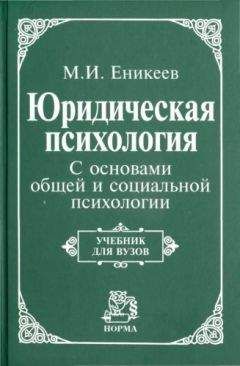Роберт Стивенсон - Английский с Р. Л. Стивенсоном. Странная история доктора Джекила и мистера Хайда / Robert Louis Stevenson. The Strange Case of Dr. Jekyll and Mr. Hyde
Under the strain of this continually impending doom and by the sleeplessness to which I now condemned myself, ay, even beyond what I had thought possible to man, I became, in my own person, a creature eaten up and emptied by fever, languidly weak both in body and mind, and solely occupied by one thought: the horror of my other self. But when I slept, or when the virtue of the medicine wore off, I would leap almost without transition (for the pangs of transformation grew daily less marked) into the possession of a fancy brimming with images of terror, a soul boiling with causeless hatreds, and a body that seemed not strong enough to contain the raging energies of life. The powers of Hyde seemed to have grown with sickliness of Jekyll.
And certainly the hate that now divided them (и, безусловно, та ненависть, что теперь разделяла их) was equal on each side (была равной с обеих сторон). With Jekyll, it was a thing of vital instinct (для Джекила это был вопрос самосохранения; vital – жизненный; жизненно важный; instinct – инстинкт, чутье). He had now seen the full deformity of that creature (теперь он увидел полное = крайнее уродство того существа) that shared with him some of the phenomena of consciousness (которое делило с ним некоторые стороны сознания; phenomenon /pl. phenomena/ – явление, феномен), and was co-heir with him to death (и должно было стать сонаследником его смерти; heir – наследник): and beyond these links of community (и за пределами этих объединяющих звеньев; community – община; сообщество, объединение), which in themselves made the most poignant part of his distress (которые сами по себе составляли наиболее мучительную часть его несчастья; poignant – /уст./ острый /о предметах/; горький, мучительный), he thought of Hyde, for all his energy of life (он считал Хайда, несмотря на всю его жизненную энергию), as of something not only hellish but inorganic (чем-то не только демоническим, но и неживым: «неорганическим» = чем-то не причастным органическому миру).
And certainly the hate that now divided them was equal on each side. With Jekyll, it was a thing of vital instinct. He had now seen the full deformity of that creature that shared with him some of the phenomena of consciousness, and was co-heir with him to death: and beyond these links of community, which in themselves made the most poignant part of his distress, he thought of Hyde, for all his energy of life, as of something not only hellish but inorganic.
This was the shocking thing (именно это и было самым ужасным; shocking – отвратительный; потрясающий, ужасающий); that the slime of the pit seemed to utter cries and voices (то, что эта мерзость из преисподней, казалось, издавала крики и голоса; pit – яма; ад; slime – липкий ил; тина; муть; омерзительный, отталкивающий тип; нечто омерзительное, противное); that the amorphous dust gesticulated and sinned (этот аморфный прах жестикулировал и грешил); that what was dead and had no shape, should usurp the office of life (то, что было мертвым и не имело формы, незаконно захватывало = присваивало себе функции жизни; office – служба, должность; обязанность, функция). And this again, that that insurgent horror was knit to him closer than a wife (а также то, что эта бунтующая мерзость была для него ближе жены; to knit – вязать /на спицах/; связывать, скреплять), closer than an eye (неотъемлемее глаза); lay caged in his flesh (заключена в клетку его плоти; to lie – лежать; быть, оставаться /в каком-либо положении или состоянии/; cage – клетка), where he heard it mutter (где он слышал, как она бормочет) and felt it struggle to be born (и чувствовал, как она сражается/прилагает усилия, чтобы появиться на свет = рвется на свет; to bear – переносить; рождать, производить на свет); and at every hour of weakness (и в каждый час слабости = в минуты слабости), and in the confidence of slumber (или под покровом сна; confidence – доверие), prevailed against him (брала над ним верх; to prevail – торжествовать, одержать победу), and deposed him out of life (и смещала = вытесняла его из жизни).
This was the shocking thing; that the slime of the pit seemed to utter cries and voices; that the amorphous dust gesticulated and sinned; that what was dead and had no shape, should usurp the office of life. And this again, that that insurgent horror was knit to him closer than a wife, closer than an eye; lay caged in his flesh, where he heard it mutter and felt it struggle to be born; and at every hour of weakness, and in the confidence of slumber, prevailed against him, and deposed him out of life.
The hatred of Hyde for Jekyll was of a different order (ненависть же Хайда к Джекилу была другого порядка). The terror of the gallows drove him continually to commit temporary suicide (страх перед виселицей постоянно заставлял его совершать временное самоубийство; to drive – гнать; побуждать), and return to his subordinate station of a part instead of a person (и возвращаться к подчиненному положению части, вместо целой личности = вместо того, чтобы быть целой личностью); but he loathed the necessity (но эта необходимость вызывала у него отвращение; to loathe – питать отвращение, чувствовать отвращение; не выносить), he loathed the despondency into which Jekyll was now fallen (ему было противно то уныние, в которое теперь впал Джекил; despondency – отчаяние, уныние, упадок духа, подавленное настроение, угнетенность; despondent – унылый, подавленный, угнетенный, отчаявшийся), and he resented the dislike with which he was himself regarded (и его возмущало то, с какой неприязнью тот относился к нему: «с которым он был сам рассматриваем/расцениваем»; to regard – расценивать, рассматривать).
The hatred of Hyde for Jekyll was of a different order. The terror of the gallows drove him continually to commit temporary suicide, and return to his subordinate station of a part instead of a person; but he loathed the necessity, he loathed the despondency into which Jekyll was now fallen, and he resented the dislike with which he was himself regarded.
Hence the apelike tricks that he would play me (отсюда и все те обезьяньи выходки, которые он мне устраивал; to play – играть; сыграть шутку, разыграть), scrawling in my own hand blasphemies on the pages of my books (набрасывая моим почерком богохульства на страницах = полях моих книг; to scrawl – писать наспех; писать неразборчиво; писать каракулями, закорючками), burning the letters (сжигая письма) and destroying the portrait of my father (и уничтожив портрет моего отца); and indeed, had it not been for his fear of death (и уж конечно, если бы не его собственный страх смерти), he would long ago have ruined himself (он уже давно бы уничтожил сам себя) in order to involve me in the ruin (только для того, чтобы и меня вовлечь в эту гибель). But his love of life is wonderful (но его любовь к жизни поразительна); I go further (скажу более: «зайду дальше /в моих утверждениях/»): I, who sicken and freeze at the mere thought of him (я, испытывающий отвращение и /у кого/ мороз /бежит по коже/ при одной только мысли о нем; to sicken – заболевать; испытывать отвращение), when I recall the abjection and passion of this attachment (когда я вспоминаю о низменной и страстной этой его привязанности /к жизни/; abjection – унижение; униженность; abject – подлый, низкий; passion – страсть), and when I know how he fears my power to cut him off by suicide (и когда я знаю, как он боится моей власти оборвать его существование самоубийством; to cut off – обрезать, отрезать), I find it in my heart to pity him (я обнаруживаю в своей душе /способность/ испытывать жалость к нему).
Hence the apelike tricks that he would play me, scrawling in my own hand blasphemies on the pages of my books, burning the letters and destroying the portrait of my father; and indeed, had it not been for his fear of death, he would long ago have ruined himself in order to involve me in the ruin. But his love of life is wonderful; I go further: I, who sicken and freeze at the mere thought of him, when I recall the abjection and passion of this attachment, and when I know how he fears my power to cut him off by suicide, I find it in my heart to pity him.
It is useless, and the time awfully fails me, to prolong this description (продолжать это описание не имеет смысла, да и часы мои сочтены; to fail – терпеть неудачу; быть недостаточным, не хватать; useless – бесполезный; use – польза, использование); no one has ever suffered such torments, let that suffice (никто никогда не испытывал таких мук, пусть будет довольно этого; to suffice – быть достаточным, хватать; удовлетворять); and yet even to these, habit brought (но даже и этим мукам привычка принесла) – no, not alleviation (нет, не облегчение = не смягчение этих мук; to alleviate – облегчать /боль, страдания/; смягчать) – but a certain callousness of soul (но некоторое: «определенное» огрубение души; callous – загрубелый, затвердевший; мозолистый), a certain acquiescence of despair (некоторое /молчаливое/ согласие отчаяния = примирение от отчаяния; acquiescence – уступка, согласие); and my punishment might have gone on for years (и мое наказание могло бы продолжаться еще многие годы; to go on – продолжаться), but for the last calamity which has now befallen (если бы не последняя катастрофа, которая теперь случилась; calamity – бедствие, беда, катастрофа; to befall – приключаться, происходить, совершаться), and which has finally severed me from my own face and nature (и которая окончательно отделила меня от моего собственного лица и характера: «естества»).
It is useless, and the time awfully fails me, to prolong this description; no one has ever suffered such torments, let that suffice; and yet even to these, habit brought – no, not alleviation – but a certain callousness of soul, a certain acquiescence of despair; and my punishment might have gone on for years, but for the last calamity which has now befallen, and which has finally severed me from my own face and nature.
My provision of the salt (мой запас соли; provision – снабжение, обеспечение; заготовка, запас), which had never been renewed since the date of the first experiment (который ни разу не восполнялся с даты первого эксперимента; to renew – обновлять, восстанавливать; пополнять /запасы и т. п./), began to run low (начал иссякать; to run low – истощаться /о запасах и т. п./; to run – бежать; low – низкий). I sent out for a fresh supply, and mixed the draught (я послал за свежим запасом и смешал питье); the ebullition followed (последовало кипение), and the first change of colour, not the second (/последовало/ и первое изменение цвета, но не второе); I drank it, and it was without efficiency (я выпил его, но безрезультатно; efficiency – эффективность, результативность, действенность; efficient – действенный, результативный, эффективный). You will learn from Poole how I have had London ransacked (от Пула вы узнаете, как я приказывал обшарить весь Лондон; to ransack – искать; обыскивать, обшаривать; рыться в поисках)! it was in vain (и все тщетно); and I am now persuaded that my first supply was impure (и теперь я убежден, что первый мой запас /соли/ был с некой примесью; impure – нечистый; смешанный, с примесью) and that it was that unknown impurity which lent efficacy to the draught (и что именно эта неизвестная примесь и придавала действенность препарату; impurity – загрязненность; примесь; to lend – давать взаймы; придавать).




